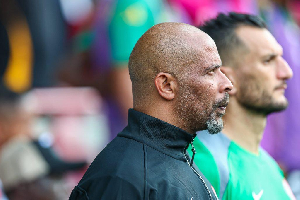Business News of Tuesday, 12 August 2025
Source: www.punchng.com
Sanwo-Olu, Fashola urge mindset shift to drive development
Governor Babajide Sanwo-Olu of Lagos State, former Minister of Works, Power and Housing Babatunde Fashola, SAN, and other stakeholders have stressed the importance of a mindset shift in leaders and citizens for Nigeria to truly develop.
The call was made at the Lagos edition of the Nigerian Economic Summit Group’s National Dialogue Series, under the Nigerian Hamilton Project, supported by NESG and the Gates Foundation.
The series was inspired by Prof. Osita Ogbu’s seminal book, ‘Development as Attitude: How National Progress is Shaped by Leadership Philosophy and Citizens’ Orientation’.
The book explored how leadership thinking, citizen participation, and collective action influence national development. It will also reflect on Nigeria’s experience alongside selected African countries to refine policy and development strategies.
Speaking on the Hamilton Project, NESG Chief Executive Officer, Tayo Aduloju, said, “The Hamilton Project was conceptualised first and foremost as the board of advisors of NESG was reflecting on what needs to change for Nigeria to move at the pace that we all want, and that reflection led to one conclusion: that economic policy was not enough, that minds have to change. Minds have to shift. Paradigms have to shift. At scale, at critical mass, we must achieve a developmental paradigm that matches our unique contextual realities and allows us to go on the journey that we have always wanted to go on and have been constrained from, either by political constraints, by social constraints, by economic constraints, or just by sheer constraints of post-colonial mindsets.
“The Hamilton Project draws from the example of Alexander Hamilton, where citizens and experts, not just government, led robust national debates that shaped democracy. Societies without such debates do not do well, because the bad ideas of a few can end up punishing the many.”
Sanwo-Olu, who was represented by the Lagos State Commissioner for Economic Planning, Ope George, agreed that national progress depends on the leadership philosophy and the mindset of our people.
He said, “In my opinion, the philosophy of leadership is about vision, consistency and a relentless focus on the well-being of the people that you serve. It is about having a clear plan and the focus to see it through, even when the plan seems difficult. As Professor Ogbu rightly says, the way the leader thinks, what they believe in and how they make decisions form part of the impact on the future of our nation. Here in Lagos, our approach to leadership is simple. We are building a city that works for everyone. That means fixing our roads and expanding infrastructure, using technology to make government more efficient and focusing on quality education because at the end of the day, the true strength of any nation is not in its buildings or projects; it is in its people. Leadership is one part of the story; as the books said, national progress also depends on the mindset of our people. You can lay the foundation, but it is in the actions and attitudes of our citizens that complete the work.
He continued, “Without a shared culture of care and responsibility, even the best public project wouldn’t last. True development comes when both leaders and citizens play their part. Lagos, in many ways, is the perfect case study for this dialogue. Every day, we see leadership, philosophy and citizen orientation at play. The progress we have made is a result of this partnership. The government has to lead with integrity, and citizens must respond with a positive and developmental attitude.”
Fashola, who was also a former governor of Lagos State, highlighted the lack of a coherent national ideology to serve as a rallying point and suggested the entrenchment of the rule of law as a national ideology.
“I’m not sure that we have been socialised to the necessity of an ideology from the very beginning. So, I ask the question, what does my ‘Nigerianness’ or your ‘Nigerianness’ mean? What is our creed as a people? What does success look like? Do we know what a happy Nigeria looks like? Is there a mean point where we can say, ‘If we are here, we are good’? Of course, that is problematic. You mentioned Singapore and Israel, but their ideologies were driven by a combination of anger, hatred, isolation and the concept that perhaps they were just surrounded by enemies. From there, the nations were rallied, people were educated, and they were conscientised towards a particular purpose. Now, is that possible in a country of many nations?
He added, “I think the idea of a nation of laws is one that easily appeals to me. If it could just be said of us, ‘That country is a country of laws.’ They are law-abiding people, and it will perhaps make us richer than if we were just looking at prosperity.”
The author of the book and Co-Chair of the NESG National Economic Advisory Council, Professor Osita Ogbu, said, “When you look at the totality of what the nation does and how citizens respond…citizenship responsibility comes from having a stake in the nation. When you don’t have a stake, it’s difficult to exercise that responsibility. Many people love Nigeria, but they may not love the government that is in place. You may not like your government, but you should like your nation.”
He added, “A good government implies two things: fidelity to the object of government, which is the happiness of the people, and the knowledge of the means to deliver that happiness. Even if you don’t know the best way to deliver, you must assemble those who will help you attain that goal. Those two elements remain critical in government today.”
He also cited the lack of national shame and how shame can drive a new narrative in Nigeria, saying, “Shame is revolution itself. When people suffer shame, it should be like a lion recoiling in order to leap and to conquer. Why do we not treat the things that happen to us as a reason to rise and rebuild? We went to the Olympics, spent money, sent delegations, and came back with zero medals. Nobody retired, nobody resigned, and nobody said anything. It was like business as usual.”
The Managing Director/Chief Executive Officer of Sterling Bank, Abubakar Suleiman, in his contribution to the panel discussion, called for building the fundamentals that can enable the nation to leapfrog.
“The idea that you can leapfrog has often been misunderstood to mean that certain fundamental processes can be ignored. There is no universe where we can make the things you need in the modern world without sound foundational knowledge of science and technology, without having the capacity for research and without translating that into a manufacturing base. It doesn’t exist. The things that we like, from our shoes to our phones, cannot be made without science and technology, without research.
He added, “So, whenever we have that conversation, I always argue that the reason the Aba market has not been able to grow the labour market and employment market is because it has not been able to grow as a market. It cannot grow as a market until the quality of what comes out of Aba and the quantity that comes out match those who are spending millions of dollars in research. It is as simple as that.”












